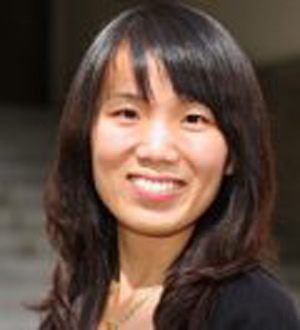Zheng Wang Shows Feelgood Folly of Multitasking
Multitasking may make you feel good by making tasks seem less tedious but it really hurts the quality of your work output, says researcher Zheng Joyce Wang.
“There’s this myth among some people that multitasking makes them more productive,” said Wang, the study’s lead author and an assistant professor of communication at Ohio State University. “But they seem to be misperceiving the positive feelings they get from multitasking. They are not being more productive — they just feel more emotionally satisfied from their work.”
People show poorer performance on a variety of tasks when they try to juggle multiple media sources — for example, going from texting, to reading, to watching an online video, according to many laboratory studies, said Wang. Yet multitasking is on the rise due to the availability of so many forms of media.
So Wang sought to discover why so many people continue to engage in multitasking despite the clear drawback.
The only way to answer that question was to move out of the laboratory and into real settings, Wang decided. She and grad student John Tchernev asked 32 college student subjects to carry a mobile device and report all their activities, including media use, three times each day for four weeks.
The reports detailed the use of media like computer, radio, print, television, radio as well as the specific activities for which they were used like web browsing or social networking. They also reported the duration of each activity and whether they were engaging in other activities at the same time.
They reported on their motivations for each activity or combination of activities by selecting from a list of seven potential needs, including social, fun/entertainment, study/work, and habits/background noise. They rated the strength of the need on a 10-point scale, and whether those needs were met on a 4-point scale.
Subjects were more likely to multitask when they reported an increase in cognitive needs like study or work, or habitual needs, or both. Typically students were more likely to multitask when they needed to study — a cognitive need.
The study found that multitasking did a poor job of satisfying their cognitive needs which actually motivated the multitasking in the first place, Wang said, because their other media use distracted them from the job of studying. But the multitasking met their emotional needs for fun/entertainment/relaxing — a need they weren’t even trying to satisfy.
For example, students who watched TV while reading a book reported feeling more emotionally satisfied than those who studied without watching TV. Unfortunately, they also reported that they didn’t learn as well.
“They felt satisfied not because they were effective at studying, but because the addition of TV made the studying entertaining,” said Wang. “The combination of the activities accounts for the good feelings obtained.”
Habits played a major role in prompting media multitasking.
“Our findings showed that habitual needs increase media multitasking and are also gratified from multitasking,” said Wang.
People who make a habit of multitasking are more likely to continue.
“We found what we call a dynamical feedback loop,” she said. “If you multitask today, you’re likely to do so again tomorrow, further strengthening the behavior over time.
“This is worrisome because students begin to feel like they need to have the TV on or they need to continually check their text messages or computer while they do their homework. It’s not helping them, but they get an emotional reward that keeps them doing it.”
The study was supported by a grant from the National Science Foundation, and appears online in the Journal of Communication. It will also be published in a future print edition.
Zheng Joyce Wang received a bachelors degree in journalism and mass communications in 2001 from China Youth University for Political Sciences in Beijing Education. She received a masters in mass communications in 2006 from Indiana University, followed by a PhD in communications & cognitive science in 2007 from Indiana University. She has been an assistant professor at the school of communication at Ohio State University in Columbus since 2007.

Zheng Joyce Wang is an assistant professor of communications at Ohio State University.

